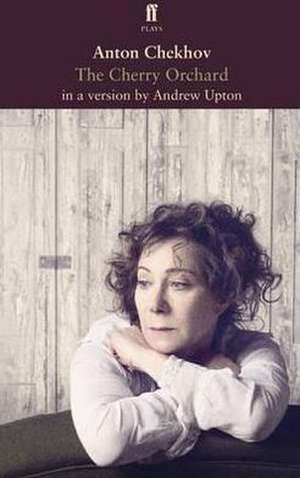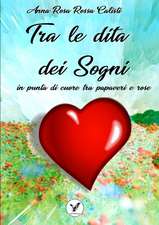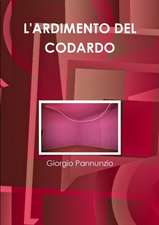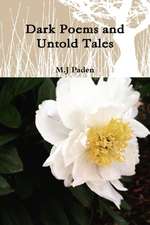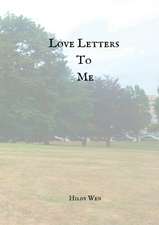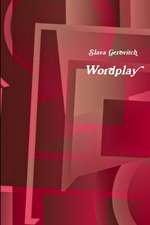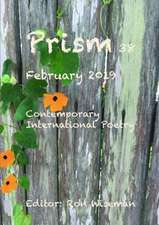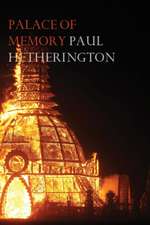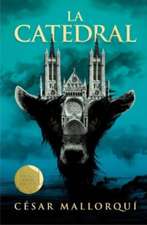The Cherry Orchard
Autor Anton Chekhov Traducere de Andrew Uptonen Limba Engleză Paperback – 19 mai 2011
Preț: 68.38 lei
Nou
Puncte Express: 103
Preț estimativ în valută:
13.09€ • 14.22$ • 11.00£
13.09€ • 14.22$ • 11.00£
Carte disponibilă
Livrare economică 01-15 aprilie
Livrare express 15-21 martie pentru 14.61 lei
Preluare comenzi: 021 569.72.76
Specificații
ISBN-13: 9780571277681
ISBN-10: 0571277683
Pagini: 96
Dimensiuni: 156 x 199 x 8 mm
Greutate: 0.11 kg
Ediția:Main
Editura: FABER & FABER
ISBN-10: 0571277683
Pagini: 96
Dimensiuni: 156 x 199 x 8 mm
Greutate: 0.11 kg
Ediția:Main
Editura: FABER & FABER
Caracteristici
Simon Stephens's version of Ibsen's A Doll's House, also commissioned by the Young Vic, was described as 'agile. . . quick . . . clear, and full of subtle touches' (Guardian); 'sensitive and spirited' (Daily Telegraph); 'supple' (Evening Standard); and 'astute . . . often savagely funny' (Metro)
Notă biografică
Anton Chekhov (1860-1904), Russian physician, dramatist and author, is considered to be one of the greatest writers of short stories and modern drama. Born in Taganrog, a port town near the Black Sea, he attended medical school at Moscow University. He began writing to supplement his income, writing short humorous sketches of contemporary Russian life. A successful literary careered followed, before his premature death of TB at the age of 44. He is best-remembered for his four dramatic masterpieces: The Seagull (1896), Uncle Vanya (1899), Three Sisters (1901) and The Cherry Orchard (1904).Rory Mullarkey graduated in 2009 from Cambridge, after which he studied at the State Theatrical Arts Academy of St. Petersburg. A translator of Russian Drama, Mullarkey's translations have been produced by the ADC Theatre, The Royal Court and the Free Theatre of Belarus. Plays include Single Sex (Royal Exchange); Remembrance Day (Royal Court), Tourism (Headlong) and Come To Where I'm From (Paines Plough). Mullarkey spent 2010 as Writer-on-Attachment at the Royal Court Theatre, London, and 2011 as the Pearson Writer in Residence at the Royal Exchange, Manchester. His The Grandfathers was programmed as part of the National Theatre's 2012 Connections: Plays for Young People. In 2014, Rory Mullarkey won the Harold Pinter Playwriting Prize, the George Devine Award (jointly with Alice Birch) and the James Tait Black Prize for Drama for his play Cannibals, published by Methuen Drama.
Recenzii
Now Chekhov's final and finest play, from 1903, is the latest twentieth-century masterpiece to get a good going-over. Actually, make that an excellent going-over . . . It's been pruned, yes, but this grimly witty tragicomedy is unmistakably Chekhov . . . and it teems with life.
Stephens [has] refocussed Chekhov's play into a potent study in feminine - rather than societal - collapse.
Chekhov was superb on the destructive impact of people who take no heed: who turn other people's lives upside down (Uncle Vanya) or blithely ignore warnings (Cherry Orchard). He was superb too on those who can see the dangers, but are powerless to do anything. Little wonder then, that these great plays feel so painfully pertinent now to audiences keenly aware of intractable global problems. Little wonder either that contemporary theatre-makers seek to meet his works in the spirit of innovation.
If Chekhov were planning a revenant visit to see how his work fares in England in the 21 century, this would be an opportune moment to come.
Revivals of classic plays are the lifeblood of theatre. They are the way in which the art form tests the reputation, relevance and validity of the masterpieces of the past.
Stephens [has] refocussed Chekhov's play into a potent study in feminine - rather than societal - collapse.
Chekhov was superb on the destructive impact of people who take no heed: who turn other people's lives upside down (Uncle Vanya) or blithely ignore warnings (Cherry Orchard). He was superb too on those who can see the dangers, but are powerless to do anything. Little wonder then, that these great plays feel so painfully pertinent now to audiences keenly aware of intractable global problems. Little wonder either that contemporary theatre-makers seek to meet his works in the spirit of innovation.
If Chekhov were planning a revenant visit to see how his work fares in England in the 21 century, this would be an opportune moment to come.
Revivals of classic plays are the lifeblood of theatre. They are the way in which the art form tests the reputation, relevance and validity of the masterpieces of the past.
